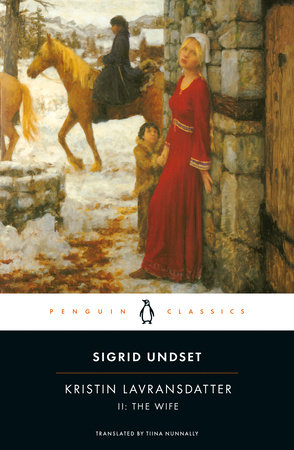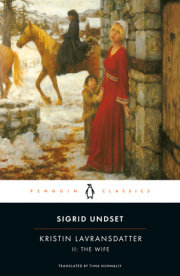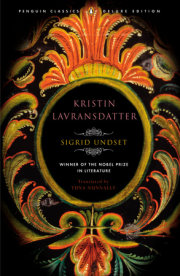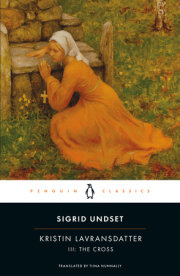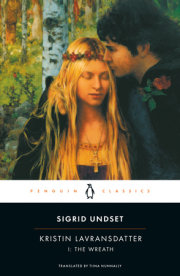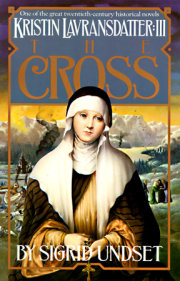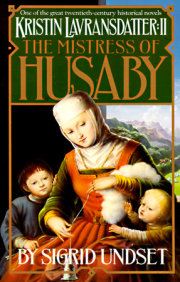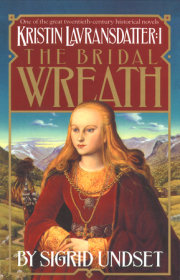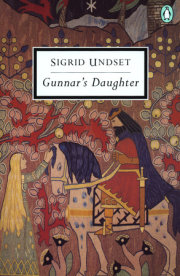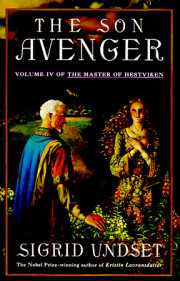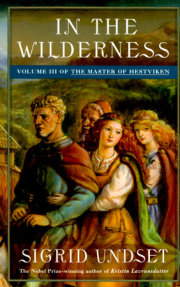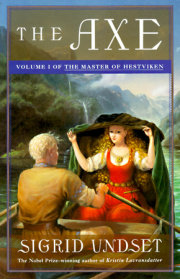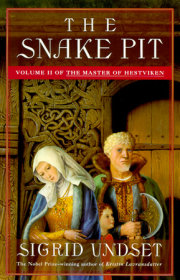By the Winner of the Nobel Prize in Literature
“[Sigrid Undset] should be the next Elena Ferrante . . . whose huge commercial success suggests there is a market for series in translation about fierce, complicated women navigating their culturally conservative European milieu. . . . If HBO is looking for its next miniseries, it should give Kristin Lavransdatter the proper adaptation it deserves. Rereading the trilogy this fall, I kept thinking of Olive Kitteridge, another powerful novel about a prickly mother turned into a worthy HBO miniseries. This trilogy includes illicit sex, affairs, a church fire, an attempted rape, ocean voyages, rebellious virgins cooped up in a convent, predatory priests, an attempted human sacrifice, floods, fights, murders, violent suicide, a gay king, drunken revelry, the Bubonic Plague, deathbed confessions, and sex that makes its heroine ache ‘with astonishment—that this was the iniquity that all the songs were about.’ ” —Ruth Graham, Slate
“[My favorite fictional hero or heroine is] probably Sigrid Undset’s strong-willed, sensual, self-destructive and ultimately rock-solid Kristin Lavransdatter. . . . Kristin’s eponymous trilogy bears many rereadings. Right away one somehow identifies with this daughter of medieval Norway; soon one compassionates her in her sufferings. . . . For all her faults [she] inspires love in many around her, including this reader. Her faith and loyalty make her quite beautiful to me. Like Murasaki and Dos Passos, Undset tells the story of a whole life.” —William T. Vollman, The New York Times Book Review
“Wildly rewarding . . . Kristin’s saga, rich with detail, has shades of Tess of the d’Urbervilles’ tragedy and Brideshead Revisited’s piety, but more than anything, the story is deeply human. . . . Her journey from maid to sinner to pilgrim to matriarch . . . is gorgeous, fresh, and propulsive in Nunnally’s translation.” —The Atlantic
“We consider it the best book our judges have ever selected and it has been better received by our subscribers than any other book.” —Book-of-the-Month Club
“The finest historical novel our 20th century has yet produced; indeed it dwarfs most of the fiction of any kind that Europe has produced in the last twenty years.” —Contemporary Movements in European Literature
“As a novel it must be ranked with the greatest the world knows today.” —Montreal Star
“Sigrid Undset’s trilogy embodies more of life, seen understandingly and seriously . . . than any novel since Dostoevsky's Brothers Karamazov. It is also very probably the noblest work of fiction ever to have been inspired by the Catholic art of life.” —Commonweal
“The first great story founded upon the normal events of a normal woman’s existence. It is as great and as rich, as simple and as profound, as such a story should be.” —Des Moines Register
“No other novelist, past or present, has bodied forth the medieval world with such richness and fullness of indisputable genius. . . . One of the finest minds in European literature.” —New York Herald Tribune
“A master . . . writing in a prose as vigorous, articulate and naturalistic as the novel it re-creates, Tiina Nunnally brilliantly captures a world both remote and strangely familiar.” —Judges’ citation, PEN/Book-of-the-Month Club Translation Prize

